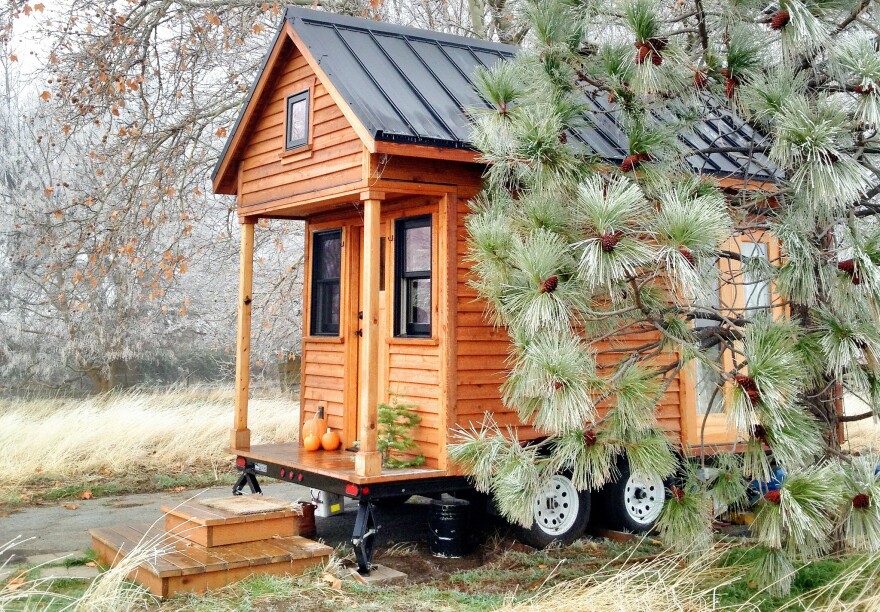A village of tiny homes to house people with mental illnesses could be coming to Chatham County, North Carolina.
Many people with mental illnesses live on a federal income of about $750 per month, called the Supplemental Security Income, which creates a challenge for them to find safe and affordable housing.
This story was produced by WUNC.
Thava Mahadevan works with the Center for Excellence in Community Mental Health at the University of North Carolina-Chapel Hill. He's leading the effort to build the tiny home development and says each tiny house would cost $250 in rent per month.
"It is such a critical issue and unfortunately there aren't any obvious solutions that are out there," Mahadevan says. "I think this could be a game changer."
Mahadevan envisions a group of 10 tiny homes. In a little more than 300 square feet, each house would include a bedroom, living room, kitchen and bathroom. It will be located on a 40-acre farm already owned by the Center.
Residents would have access to on-site mental health services from doctors and nurses. The farm would also provide opportunities to improve physical health.
"It's a place where they will be living in a supportive environment with other people, and the whole mental illness is not the focus here," Mahadevan said. "The focus is on wellness."
Though there are other tiny house projects in the country, Mahadevan says this is the first aimed at housing people with mental illnesses. He says he hopes to set a trend in the state and the country.
"I think this would be a great model for North Carolina to be able to pilot this as the first state to really come up with a strong and long-term solution for affordable housing."
Mahadevan is partnering with several local non-profits and organizations to privately fund and build the tiny homes. However, he says he's already begun talks with state officials interested in expanding the idea across North Carolina.
"Clearly people are wanting a solution, and I think this will be a great way to involve the local community to be able to build and come up with a local solution."
Mahadevan expects the first demo house to be completed in six to eight weeks. Then 10 clients will live in the house for one or two weeks each and provide feedback on the situation. The Farm At Penny Lane will build five houses initially, study the development for several months, and then build the final five.






